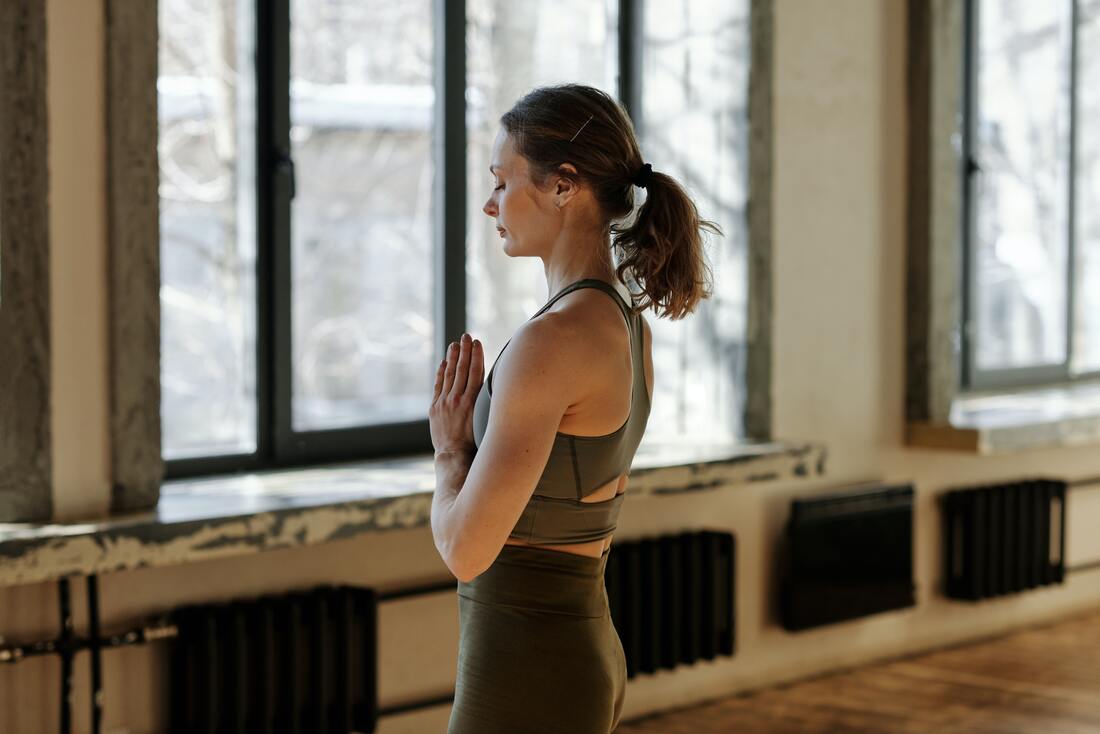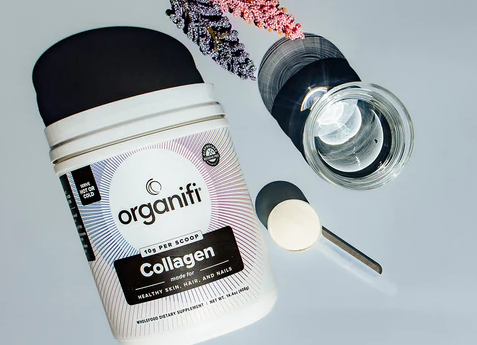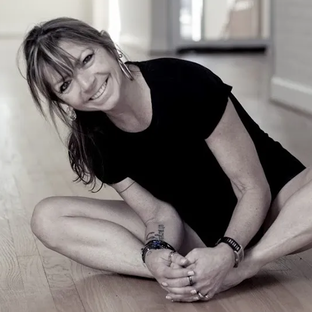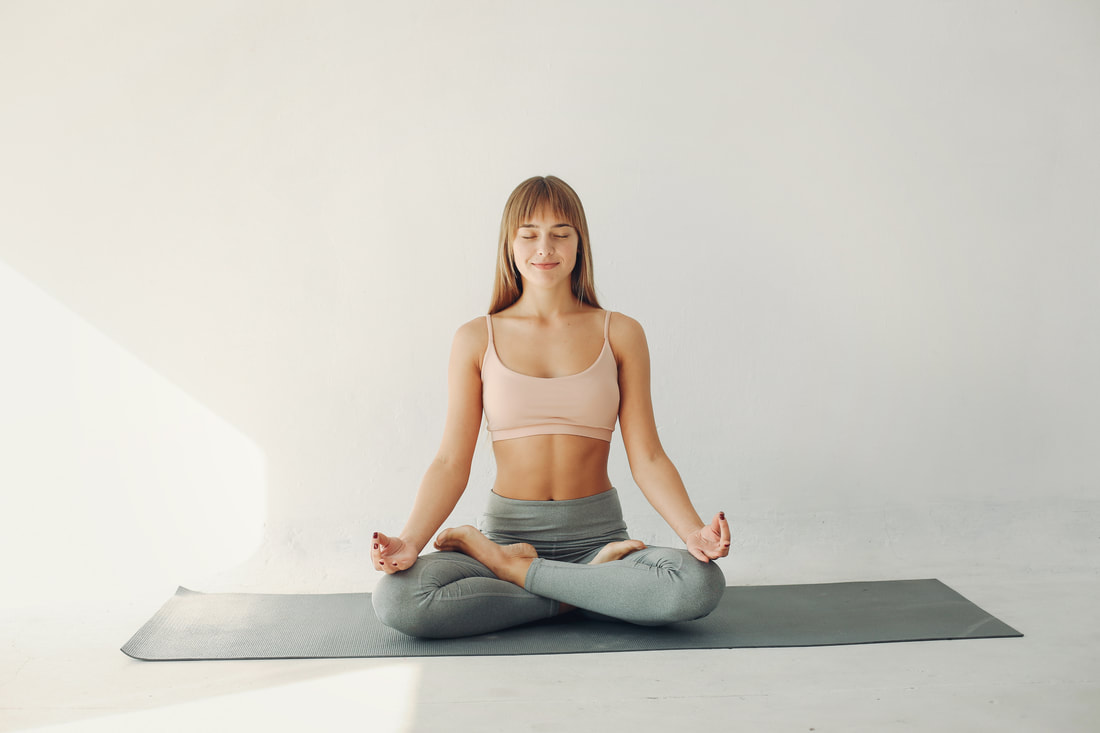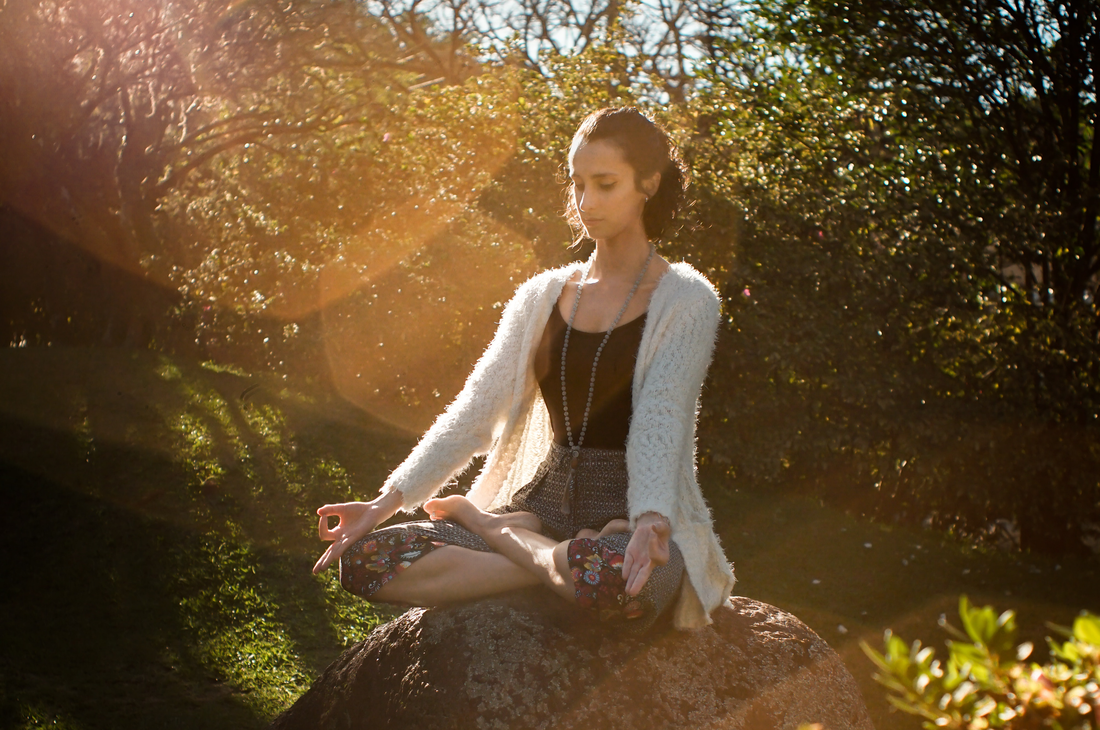|
Yoga is an incredible way to relieve stress and find refuge in true mind, body, and spirit connection. It’s a highly enriching, multifaceted activity that encompasses mantra, meditation, breathwork, and posture practice for complete health and wellness. Since civilization came to be, yoga has had a deep link with nature and our inherent being, which is why it’s such an incredible way to unwind. But beyond the mat, and taking classes at 532YOGA, having a complementary range of relaxation avenues can work to enrich our lives even further. Perhaps it’s as simple as engrossing yourself in a good read or playing online slots where bonuses with no deposit are limited. Whichever end of the spectrum your personal preferences lie, the options are endless.
Wander in Nature and the Outdoors There’s nothing quite like the earthy aroma of nature that keeps your olfactory system busy or the feeling of the warm sun on your bare skin. Spending time in nature has a profound effect on our mental health that we just can’t ignore. Whether it’s a walk through the forest or growing a thriving garden, any intentional activity outdoors can help you feel more relaxed and alleviate symptoms of anxiety and depression. In fact, spending time in a natural atmosphere is so inherently valuable that the Japanese coined the term Shinrin-yoku (forest bathing). It entails spending time in a forest or other natural space and focusing on engaging the senses to foster a connection with nature. There’s even evidence that there are physical changes in the human body’s immunological and inflammatory markers after a bout of forest therapy. Try Mindfulness and Meditation Forest therapy can be seen as a kind of meditation, but there are a plethora of ways that you can practice mindfulness if you can’t get among the trees. Whether you’re taking a breather between work projects or want to work on being fully present in the moment, mindfulness practices are a great way to reduce feelings of overwhelm and overall reactivity. It’s also evidence-based, which means we’ve got an extensive library of research that has demonstrated its incredible effects on our happiness, overall health, productivity, and relationships. Ancient Chinese martial arts like tai chi and qigong are both unique forms of mindfulness that mirror a yoga-like practice. While the term “martial arts” might sound like you’re going to engage in a combat sport, these specific activities are gentle and low-impact, focusing on deliberate and flowing motions and breathwork to manage stress. Take on a Creative Pursuit At all stages of life, creative hobbies serve a special function. Painting, writing, coloring, playing an instrument, and other crafts offer an outlet for us to process and express our deepest thoughts and feelings. Personal expression is extremely fulfilling for humans, and being able to experience this while accomplishing something joyful is a one-of-a-kind process that we shouldn’t miss out on. We often get immersed in these hobbies for long periods of time, as they let us forget about responsibilities and worries by transporting us into a new world. While we might traditionally do these tasks indoors in the comfort of our own homes, why not take the opportunity to experiment with a different setting? Parks, libraries, nature trails, and other locations could help spark your creativity and provide a change of scenery. Do Other Forms of Physical Activity Unwinding can also come in the form of physical exertion. Sometimes, it’s not just about slowing down – it’s also about letting go of any built-up tension or stress through the release of endorphins in the brain. Harvard Health refers to endorphins as the body’s natural painkillers, as they’re naturally released in response to pain and stress to help counter those negative feelings. Exercise is a fantastic way to increase the production of those feel-good hormones, and it can be anything that tickles your fancy – dancing, brisk walking, running, lifting, swimming, or even a barre or kickboxing class. After doing your exercise of choice, hitting the sauna, stretching, or even plunging into an ice bath can extend and amplify those mental and physical benefits in their own ways. Connect with Others There’s no better feeling than cuddling up with a loved one or catching up on life with a best friend. It’s an unmatched way to wind down and restock our emotional reserves. Social connections are integral to what it means to be human, and, in turn, that support and sense of belonging become a huge part of our ability to relax and unwind. Being able to share our feelings, thoughts, and important moments with loved ones lets us feel loved and connected, improving our emotional resilience. Physiologically, our body releases oxytocin and dopamine in response, which contributes greatly to feelings of satisfaction and motivation. Experiment with Food For many of us, a life without delicious food is no life at all. While cooking and baking can be looked at as a form of art and creativity, there’s something particularly unique about food. Creating new recipes, working with unfamiliar ingredients, and learning about new methods of cooking all introduce creativity, sensory stimulation, and focus. We recommend walking through a weekend farmers’ market and falling in love with the incredible produce or perhaps joining a food tour that will introduce you to local delicacies or different cuisines. The many flavors, textures, and ingredients out there will provide an experience that is sure to soothe your mind and bring joy to your day.
0 Comments
Image by Freepik
Developing healthy habits often seems overwhelming, especially when it feels like a total lifestyle overhaul is required. However, focusing on small, manageable changes that fit seamlessly into your existing routine can lead to lasting and meaningful improvements. This approach allows for gradual progress, making it easier to maintain new habits and ultimately transform your life. Use this guide shared by 532Yoga to help you get started. Cultivate Gratitude Practicing gratitude is a powerful way to enhance your well-being. By regularly acknowledging and appreciating the positive aspects of your life, you can shift your focus from what's lacking to what you have. This simple act can improve your mood, increase your resilience, and foster a more positive outlook. Start by keeping a gratitude journal and writing down a few things you're thankful for each day. This habit can be incorporated into your morning or evening routine, making it an effortless yet impactful change. Seek Fulfilling Work Working a job you dislike can harm your mental and physical health. Seeking a position aligned with your passions and skills leads to greater satisfaction and productivity. When applying for jobs, tailor your resume by adjusting keywords in the skills section to match each employer's needs. Find out how to write a resume that effectively emphasizes relevant professional history and educational experiences to make a strong impression. This approach enhances your chances of finding fulfilling employment that positively contributes to your well-being. Discover the Benefits of Yoga Yoga is an excellent practice for both physical and mental health. It enhances flexibility, strength, and balance while promoting relaxation and stress relief. Incorporating yoga into your routine can be as simple as setting aside a few minutes each day for practice. There are various styles and levels, so you can find a type that suits your needs and preferences. Over time, you'll likely experience improved physical health, reduced anxiety, better mental clarity, and a greater sense of peace and well-being. If you’re ready to get started with yoga, get in touch with 532Yoga to sign up for a class. Partner for Accountability An accountability partner can provide the support and motivation you need to stick to your healthy habits. Choose someone who shares your goals and can encourage you to stay on track. This partnership can involve regular check-ins, sharing progress, and offering mutual support. By having someone to hold you accountable, you’re more likely to stay committed to your goals and overcome challenges. This collaboration can also make the journey more enjoyable, fostering a sense of community and shared purpose. Limit Screen Exposure Reducing screen time can greatly enhance your health by addressing issues such as eye strain, poor posture, and disrupted sleep. By setting limits on recreational screen use and replacing it with activities like reading, exercising, or engaging in hobbies, you promote overall well-being. Additionally, creating screen-free zones during meals and before bedtime can improve relationships and sleep quality. These small yet impactful changes contribute significantly to better physical and mental health, making a noticeable difference over time. Focus on Progress Embracing progress rather than striving for perfection can help you maintain a positive mindset. Aiming for perfection often leads to frustration and discouragement when setbacks occur. Instead, focus on the progress you’re making, no matter how small. Celebrate your achievements and recognize that each step forward brings you closer to your goals. This perspective fosters a more sustainable and forgiving approach to developing healthy habits, allowing you to maintain momentum even when faced with challenges and obstacles, ensuring long-term success. Adopt Stress-Reduction Practices Incorporating stress-reduction techniques into your daily routine can improve your overall health and well-being. Practices such as deep breathing, meditation, and yoga can help manage stress and promote relaxation. Find what works best for you and make it a regular part of your day. Even a few minutes of mindfulness or a short walk can significantly reduce stress levels. By consistently incorporating these techniques, you can build resilience and enhance your ability to handle life's pressures more effectively. Developing healthy habits through small, manageable changes can lead to lasting and meaningful improvements in your life. By practicing gratitude, pursuing enjoyable work, finding an accountability partner, and more, you can transform your lifestyle without feeling overwhelmed. These incremental adjustments are not only achievable but also sustainable, leading to a healthier, happier you. 532Yoga strives to help all those who study here feel good in their bodies, quiet their mind, and reclaim their peace. Contact us today to learn more! Article by Stevie Murphy. Image via Pexels
As a small business owner, it can be hard to maintain a healthy work-life balance. But as stress levels rise, your well-being and productivity can suffer. Incorporating yoga and meditation into your daily routine can help you manage stress and improve your overall performance at work. 532Yoga shares some tips below. Better Leadership Skills Yoga and meditation provide an opportunity to step away from the hustle of the day-to-day operations of running a business. That break provides clarity that can help you better understand what’s important in the short and long term. Additionally, slowing down can help you make wiser decisions that will benefit both you and your employees in the long run. Better Focus Yoga and meditation offer a chance to focus on yourself instead of on other people or tasks. This helps clear away distractions and allows you to concentrate more fully on the task at hand, which leads to improved focus, better decision-making, less stress, and improved efficiency. An Improved Decision-Making Process The mental clarity gained from yoga and meditation can help sharpen the decision-making process for entrepreneurs. Taking time to meditate helps reduce anxiety about potential outcomes, allowing small business owners to make more informed decisions without being influenced by fear or other emotions. Reduced Stress and Tension Running a small business is no walk in the park – it takes dedication, discipline, hard work, long hours, late nights … the list goes on! Yoga and meditation allow entrepreneurs to take much-needed breaks throughout their days so they can rest their minds while still staying productive. The Art of Living notes that this helps reduce stress levels while also giving them a chance to refocus their energy on building their company. While practicing yoga, be sure you have comfy clothing that allows for unhindered movement. You can even practice yoga when you’re pregnant. Check into companies that offer affordable supportive maternity workout leggings that you can wear even when you’re out and about. Boost Productivity with Yoga and Meditation For entrepreneurs looking to boost their productivity, yoga and meditation can be the perfect solution. Increased mindfulness allows entrepreneurs to take advantage of opportunities they might not have noticed before - from new marketing strategies to client feedback - that could help their businesses grow. Enhanced Mood When we are feeling overwhelmed with the demands of running a small business our mood may suffer as a result – leading us into an unproductive state of mind where we are unable to focus properly on the tasks at hand. Practicing yoga techniques regularly at 532Yoga helps us remain positive even during challenging times which results in better decisions and successful outcomes for our businesses. Renewed Health and Fitness Running a small business means working longer hours than we would normally prefer – leading oftentimes to too little time for exercise and proper nutrition. Regular practice of yoga and meditation allows us to re-energize both our bodies and minds, rejuvenate our spirit, and increase muscular strength, flexibility, endurance, and immunity. Better Immunity HealthifyMe points out that paying attention to our physical health through yoga and meditation helps build up immunity against illnesses which is essential for successful entrepreneurship. A strong immune system reduces illnesses thus improving productivity. Add Walking for Extra Benefits Incorporating walking into your meditation and yoga routine can bring additional physical and mental benefits to your wellness practice. Walking is an excellent low-impact exercise that promotes cardiovascular health, helps with weight management, and enhances overall physical stamina. Furthermore, the rhythmic pace of walking can be meditative, complementing your mindfulness practices and serving as a moving meditation. If you're fortunate enough to live in a walkable area, finding a nearby park or destination for your walking practice becomes even more accessible, providing you with the opportunity to connect with nature and enjoy the rejuvenating effects of the outdoors as part of your holistic wellness routine. Yoga and meditation have been proven time after time again as highly effective tools for entrepreneurs looking for ways to improve their performance at work. Not only do these practices help reduce stress levels but also promote clear thinking, enhanced mood, renewed health, fitness levels, increased immunity along with better leadership skills, decision-making abilities and increased attention towards details all of which contribute towards growing successful businesses that thrive under any circumstances. Allowing yourself some downtime each day with these practices will go a long way in helping your company reach its full potential! Collagen supplements are dietary products that provide a protein supporting skin, joint, and bone health in the body. Organifi Multi Collagen is Made from 4 real food ingredients providing five types of collagen to replenish the body's most valued protein.
Click here to read more. Entrepreneur of the Year | NextGen Entrepreneurs
We are overjoyed to announce that the prestigious 2023 NextGen Entrepreneur award has been bestowed upon the passionate, talented, and dedicated Suzanne Leitner-Wise, owner, and director of 532Yoga. Located just blocks from the river in an award-winning space, 532Yoga serves as a sanctuary for wellness enthusiasts. With an ethos centered around teaching and practicing with genuine passion, the studio stands as a testament to Suzanne's commitment to yoga and wellness. Suzanne's credentials speak volumes of her mastery in yoga - an E-RYT500, BWY, BYTA, TMT, AYC, RCYA, a certified Ashtanga, and Rocket Teacher. She has also been a full-time Yoga Teacher in Alexandria, VA, since her arrival in the US in 2000. Her dedication to yoga and her students is truly inspiring. From being a presenter at various yoga conferences to lecturing for companies and organizations like the National Institute for Health, Suzanne has made significant contributions to the yoga community. Beyond her impressive yoga journey, Suzanne's impact extends to her work with the Institute for Justice, overturning regulations for Registered Yoga Schools in Virginia. She's also served esteemed clients, including Senator Mark Warner, The Department of Justice, and The Department of Defence. Join us in celebrating Suzanne Leitner-Wise, a true embodiment of the entrepreneurial spirit, a tireless advocate for wellness, and a shining example of the transformative power of yoga! Image by prostooleh on Freepik
Article by Martina Luongo Introduction Are you seeking a potent weapon against stress while improving your fitness and overall well-being? Look no further than yoga. Picture this: Your phone incessantly rings, your boss demands your attention, and your partner anxiously waits for dinner plans. Stress and anxiety surround you, threatening to overpower your sanity. If you’re searching for an effective remedy, consider stepping onto the yoga mat. Yoga, a holistic practice merging physical postures, controlled breathing, and meditation, has the potential to reduce stress, decrease blood pressure, and lower heart rate. The best part? Virtually anyone can engage in this ancient art. Understanding the Essence of Yoga Yoga, classified as a mind-body practice, stands as a distinguished member among the many complementary and integrative health approaches. It unifies physical and mental disciplines, offering a pathway to tranquillity for both the body and mind. By embracing yoga, you unlock the key to relaxation and the ability to conquer stress and anxiety. Within the realm of yoga, various styles, forms, and intensities exist. For stress management, consider Hatha yoga, one of the most prevalent styles, renowned for its unhurried pace and accessible movements, making it ideal for beginners. However, any style of yoga holds benefits, tailored to your personal preferences. The Core Elements of Hatha Yoga and General Classes Yoga poses, commonly referred to as postures, form the bedrock of this practice, aiming to enhance strength and flexibility. Poses encompass a range of movements, from restful floor poses to challenging postures that stretch your physical boundaries. Breathing, a vital aspect of yoga, empowers you to take control of your body and mind. Yoga teaches that regulating your breath contributes to bodily control and mental tranquility. Meditation or relaxation plays a significant role in yoga, allowing you to cultivate mindfulness, embracing the present moment without judgment. Unveiling the Health Rewards of Yoga Yoga’s potential health benefits are plentiful, including:
Yoga Precautions Typically, yoga is considered safe for most healthy individuals when conducted under the guidance of a trained instructor. Nonetheless, specific situations warrant caution. Consult your healthcare provider before commencing yoga if you possess any of the following conditions:
In such cases, modifications and avoidance of certain poses or stretches may allow you to practice yoga safely. If you experience pain or concerns, consult your doctor to ensure that you are benefiting from yoga without any adverse effects. Embarking on Your Yoga Journey While learning yoga from books or videos is an option, beginners often find it advantageous to learn under the guidance of an instructor. Yoga classes offer not only instruction but also a sense of camaraderie and friendship, both vital to overall well-being. When selecting a class, take the time to communicate with the instructor, clarifying your expectations. Pose the following questions:
Striking the Perfect Balance Every individual possesses a unique body with distinct abilities. Accordingly, you may need to modify yoga postures based on your personal capabilities. A seasoned instructor who comprehends your requirements is pivotal to practicing yoga safely and effectively. Remember, you are not obligated to execute every pose. If a particular posture feels uncomfortable or you struggle to sustain it if instructed, listen to your body and refrain from pushing beyond your limits. A skilled instructor will support your exploration while respecting your boundaries. Online Therapy Online therapy, also known as teletherapy or virtual therapy, has emerged as a convenient and accessible solution for individuals seeking mental health support. With the advancement of technology, therapy sessions can now be conducted remotely through secure video conferencing platforms. Online therapy offers the flexibility to connect with licensed therapists from the comfort of one’s own home, eliminating the need for travel or geographical limitations. This mode of therapy provides a confidential and supportive environment for clients to discuss their concerns, receive guidance, and work towards their mental well-being. It has proven to be particularly beneficial for those with busy schedules, limited mobility, or living in remote areas, ensuring that mental health support is readily available to a wider population. Conclusion In conclusion, yoga and online therapy offer powerful tools for improving mental and physical well-being in our fast-paced and stressful world. Yoga’s integration of physical movement, controlled breathing, and meditation provides a holistic approach to reducing stress, enhancing fitness, and managing chronic conditions. Meanwhile, online therapy brings therapy sessions to individuals’ fingertips, allowing them to access professional help conveniently and securely. Both practices provide opportunities for self-care, personal growth, and a path towards serenity. Whether through the physicality of yoga or the virtual connections of online therapy, these transformative practices empower individuals to prioritize their mental health and find balance in their lives. Embracing these modalities can lead to profound benefits, enabling individuals to navigate life’s challenges with greater resilience and find solace in the pursuit of well-being. Everyday Strategies for Healthy Living: Simple Habits for a More Energized and Focused Life6/16/2023 Every day, we have the power to make choices that affect our overall health and well-being. Creating and sticking to healthy habits can help you feel more energized, focused, and better equipped to handle life's challenges. Here are a few everyday strategies from 532Yoga for healthy living that you can start implementing right away.
Hydrate All Day Staying hydrated is crucial to maintaining good health, as water plays a vital role in regulating body temperature, detoxifying your system, and keeping your joints well lubricated. Consider carrying a reusable water bottle with you at all times to help keep track of your water intake. Make sure to drink at least eight glasses of water daily, or increase your consumption if you're engaged in physical activity. Your Morning Meal Matters Skipping breakfast can have negative impacts on your metabolism, leading to decreased energy and concentration levels. Eating a healthy breakfast, such as whole-grain toast, oatmeal, or eggs, can jumpstart your metabolism and give you the energy you need to tackle the day ahead. By making a conscious effort to eat breakfast, you can set yourself up for a productive and energized day. Make Healthy Investments for Your Home Investing in products like air purifiers, water filters, and organic food can go a long way in promoting healthy living. Before purchasing any of these products, it is essential to conduct thorough research and carefully read reviews to determine which options are best suited for your individual needs. By investing in high-quality products tailored to your specific requirements, you can significantly enhance your overall health and well-being. Sleep Is Non-Negotiable Adequate sleep is crucial for maintaining overall good health as it promotes mental and physical well-being by helping your body repair and rejuvenate itself. To fully benefit from the restorative power of sleep, aim to get seven to eight hours of quality sleep every night and establish a consistent bedtime routine that works for you. By prioritizing good sleep hygiene, you can improve the quality of your sleep and ultimately enhance your overall health and well-being. Be Intentional When Combating Stress The negative impact of stress on physical and mental health cannot be overemphasized. Symptoms such as anxiety, headaches, and muscle tension can be mitigated by adopting relaxation techniques like deep breathing, meditation, and especially yoga with 532Yoga, which is also incredibly beneficial for flexibility, balance, and strength. Identifying and removing stressors or learning better coping mechanisms could lead to a more fulfilling and healthier life. Get Physically Active Exercise is not just important but essential for your overall well-being, including physical and mental health. By incorporating regular exercise into your routine, you can experience multiple benefits, including increased energy, improved mood, and a reduced risk of chronic diseases like heart disease and diabetes. Experts recommend aiming for at least 30 minutes of moderate exercise every day, such as brisk walking or cycling, to reap these benefits. Organize Clutter If you're feeling overwhelmed by paper clutter, regain control of your documents with the help of PDFs and online tools that enable you to effortlessly manage and organize your paperwork. By converting different file types to PDF, you can reduce stress, streamline your life, and boost productivity. Check this out and embrace the advantages of a tidy, well-ordered workspace, all while freeing up valuable physical storage space. Incorporating these everyday strategies for healthy living into your routine can result in amplified energy levels, improved focus, and greater resilience in the face of adversity. By following the tips outlined above, you can significantly improve your overall well-being and vitality. Always keep in mind that small changes have the potential to create substantial positive impacts on your life. Author: Justin Bennett, [email protected] 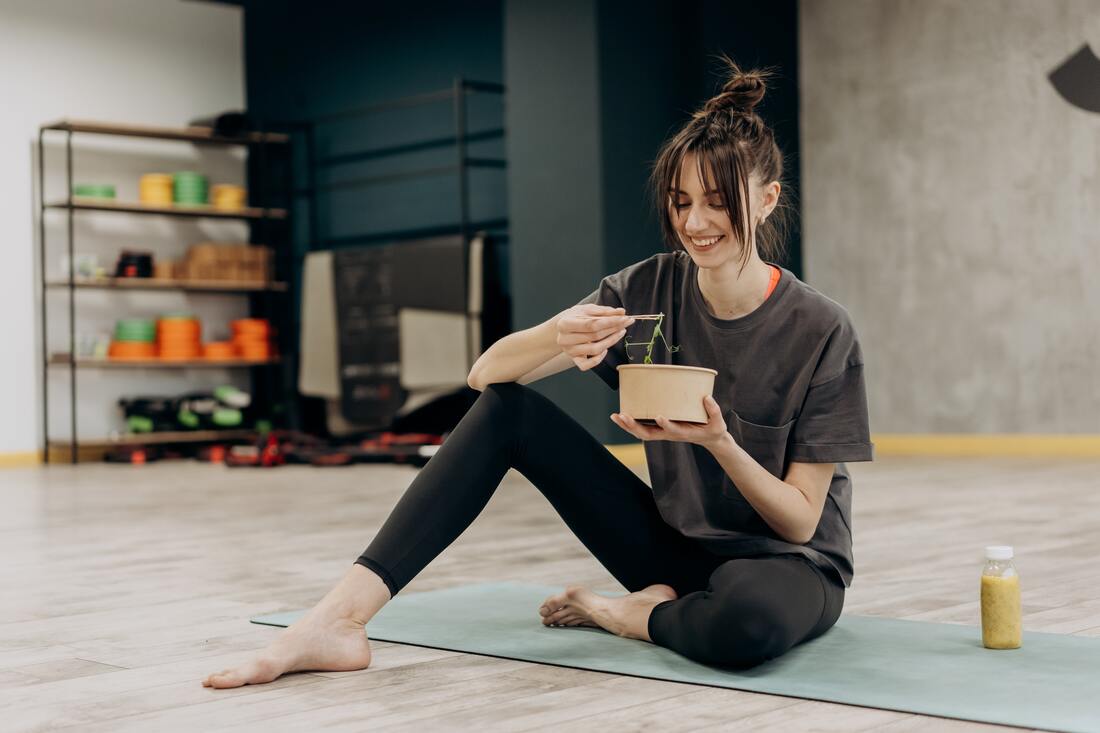 Many people view yoga as more of a spiritual practice and less of a fitness routine. However, one of the many benefits of creating your own yoga practice is how easily they can be customized to suit your unique needs. While there is a spiritual side to yoga, it is also a fantastic resource to help you achieve your fitness goals, whether it is to lose weight, build muscle, improve flexibility, or ease tension. Yoga is a great integrative activity that can be incorporated into other workouts for a well-rounded fitness routine. We’re going to talk about why you should incorporate nutrition and fitness into your yoga practice, and how to stay on track and reach your goals more quickly. NutritionOne of the key elements of a successful yoga practice is the nutrition plan that goes along with it. You’ll need some fuel before your workout, but this is not the time to scarf down a plate of fettuccine alfredo. Instead, opt for a light, healthy meal or snack a couple of hours before your workout. Choose nutritious foods that will give you plenty of energy, such as avocado toast, oatmeal with fruit, or a banana with peanut butter. The goal is to nourish your body and then give yourself some time to digest the food for an energy boost before you begin exercising. After your workout, you’ll want to choose foods that will help your body recover and repair your muscles, especially after a more vigorous flow. To do this, eat a healthy meal or snack that is rich in protein and carbohydrates such as a turkey sandwich on whole-grain bread, a chicken quesadilla, or salmon with sweet potatoes. You can also use nutrition strategies to build muscle and lose fat to help you achieve your health and fitness goals more quickly. And of course, don’t forget to hydrate! Before, during, and after your workout, be sure to stay hydrated with water, electrolyte beverages, or herbal teas. Complementary Exercises For Yoga and PilatesYoga continues to rise in popularity thanks to the abundance of health benefits that come along with it. However, depending on your personal fitness goals, you may want to incorporate other exercises into your yoga routine. Luckily, yoga is easy to integrate into other workout regimens, and is complemented by many other forms of exercise such as:
An example of how you can integrate fitness into your yoga practice is to begin your workout with a few yoga flows. This will help you stretch and warm your body up before moving into some bodyweight exercises. If you’d like to add in some cardio, you may want to do a few rounds of burpees or jumping jacks to get your heart rate up between strength training exercises, before ending your session with a gentle cool-down flow. Switching up your routine and including activities and exercises you enjoy will help keep you on track and motivated on your fitness journey. With the right nutrition, a flexible workout routine, and a few complementary exercises, you can elevate your yoga practice to help you hit your fitness goals more quickly. Source - Unsplash
As a busy entrepreneur, the last thing on your mind is likely how you can fit in more exercise. However, it is important to practice self-care and work out your body and mind whenever you can so that you can feel better overall and be less stressed. Here at 532Yoga, we love to help people relax and feel better, so we want to tell you some other ways that you can fit in self-care even during big projects and busy days. Organize Your Email and Use a PDF Editor to Save Time One way to practice self-care as an entrepreneur is to put a system in place so that you can save time and not be so busy and anxious during the workday. You can save a lot of time by automating many of your processes. So, you can set up your invoices and bill payments to automatic autopay, set up daily and weekly reminders about important tasks on your phone, and create all of your social media posts at the beginning of the month so you don’t have to return to the task time and time again. Many entrepreneurs waste a lot of time by digging through their email accounts to find past documents and new data. Instead of frantically trying to find that one message, you can instead quickly save it as a PDF. The process is simple. You just click on the email you need and choose the print icon. When the new box comes up, choose to print it as a PDF. Then you can file it in a safe place so you can find it when necessary. Plus, you can easily edit the PDF document as needed by using this tool. Declutter Your Space to Relieve the Tension If you work from your house but find that you are constantly stressed, then you need to look around at your home environment. Organized Interiors notes that if your house is messy or lacking organization then it could be what is putting you and your family on edge. When our space is cluttered, it makes us feel like we are losing control of our surroundings and our lives, so you need to clean up and restore order to your home. Go through every room in your house and separate the items that you like from the stuff that you no longer need and donate it to a local charity. If your desk is covered with stacks of paperwork then consider scanning all of those documents into your computer and shredding paper to keep it secure. You should also open the doors and let in some natural light and fresh air so you can breathe easier and gain a better focus on your work. Work Out in the Mornings If you are just too busy during the day to exercise then you should modify your routine. The easiest way to do so is to set your alarm so that you wake up at least 30 minutes earlier and make that your exercise time. You only need about 30 minutes of exercise a day to keep your body in good shape and to get the blood flowing for the day. Plus, your workout time is a great chance to clear your head and relieve some of the stress of the week. Practice Meditation or Yoga Sometimes, lifting weight just isn’t enough to put you at ease. If that is the case, then Mayo Clinic suggests doing something more thought-provoking like practicing yoga or meditation. Both activities can be very gratifying and they help you to focus on your breathing, which is great for relieving stress. As you can see, there are many different ways that you can implement self-care into your busy schedule. By clearing your house of clutter, finding time to exercise, and using time-saving tips like editing PDFs, you can feel better and get more work done. Find out why 532Yoga has been awarded Best Yoga Studio in Alexandria for four years in a row by Alexandria Best Businesses. Contact us today! 703.209.0049 Good posture is essential for quality of life. It helps us to avoid pain and injuries, improves our circulation and digestion, and even makes us look taller and more confident. But poor posture can cause physical issues and wear down our joints. In this blog post, we'll explore some easy ways to improve your posture. Keep reading to learn more!
Better Posture Means Better Circulation One of the benefits of good posture is improved circulation. Upright explains that when you sit or stand up straight, your heart doesn't have to work as hard to pump blood through your body. This means that your blood can flow more easily to your extremities, and you'll be less likely to experience things like cold hands and feet. Improving your posture is an easy way to improve your circulation! Good Posture Improves Digestion Another benefit of good posture is improved digestion. When you slouch, it puts pressure on your stomach and intestines, which can lead to indigestion and other digestive problems. By sitting up straight, you'll take the pressure off of your digestive system and give it a chance to function properly. Not to mention, good posture also helps with things like bloating and constipation! The Curse of Tech Neck These days, we spend more time looking at screens than ever before. Whether we're working on a laptop, scrolling through our phones, or watching TV, all of that screen time can take a toll on our posture. This is because we tend to hunch over our screens, which leads to what's called "tech neck." Tech neck can cause pain in the neck and shoulders, headaches, and even wrinkles! So if you want to improve your posture AND reduce wrinkles, put down the phone and sit up straight. So how do we prevent “tech neck” while still using technology? Consider transferring files to a handheld device that you can position differently. If you want to change files to PDFs, you can with a PDF converter. Once they’re on your smartphone or tablet, they’ll be more comfortable to read. The Power of the Breath Another way to improve your posture is by doing breathing exercises. The Breath Effect explains that, when we breathe deeply from our diaphragm (rather than shallow chest breathing), it helps to lengthen and strengthen our spine. This in turn helps us to sit or stand up straighter. There are loads of different breathing exercises out there, so find one that works for you and make it part of your daily routine! Yoga Can Make a World of Difference Yoga is another great way to improve your posture. While there are many different types of yoga out there, most styles focus on lengthening and strengthening the spine. This helps promote good alignment and proper spinal health. If you’re looking for a class, 532Yoga offers both in-person and virtual options. Talk to your instructor about your goals so they know what kinds of exercises to recommend. *If you need a mat, 532Yoga recommends the Manduka Pro Yoga Mat. The Impact of Being Tall For tall people, good posture is especially important. Because they have longer limbs, tall people are more susceptible to slouching. In addition, tall people often have to look up at a higher angle, which can place strain on the neck and shoulders. Just take a look at some tall celebrities on How Tall Height and how they carry themselves in public! To avoid these problems, tall people need to be particularly mindful of their posture. By standing up straight and keeping the chin parallel to the ground, tall people can help to prevent pain and tension in the upper body. Stand Tall and Feel Better There are many reasons why good posture is important for quality of life. From improved circulation and digestion to reduced stress levels and fewer wrinkles, the benefits are endless! If you're looking for ways to improve your posture, try some of the tips listed above. And don't forget – if you have back problems or are recovering from an injury, be sure to keep all of your medical records organized in one place so that you can easily find what you need if there's ever an emergency. Photo Credit: Ingrid Santana via Pexels |
Archives
July 2024
Categories
All
|
532 N. Washington St., Alexandria VA 22314 703.209.0049
Content copyright 2024 . 532YOGA.COM . All rights reserved.
Welcome l Class Schedule l Workshops l Teacher Training l FAQs l Contact
Content copyright 2024 . 532YOGA.COM . All rights reserved.
Welcome l Class Schedule l Workshops l Teacher Training l FAQs l Contact



